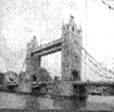
| A.ten | B.eleven | C.four | D.ten children |
| A.all the children are boys |
| B.all the children are in the same clothes |
| C.all the children are lovely |
| D.all the children are wearing the same trousers |
| A.she has so many children |
| B.she loves her children |
| C.she doesn't want to take her children home |
| D.she wants to see her children easily among others |
| A.White caps, blue coats and yellow trousers. |
| B.Blue caps, yellow coats and white trousers. |
| C.Yellow caps, white coats and blue trousers. |
| D.White caps, yellow coats and blue trousers. |


 口算心算速算应用题系列答案
口算心算速算应用题系列答案 同步拓展阅读系列答案
同步拓展阅读系列答案科目:初中英语 来源:不详 题型:阅读理解
查看答案和解析>>
科目:初中英语 来源:不详 题型:阅读理解
| A.Yesterday | B.Last week |
| C.The day before yesterday | D.Last year |
| A.go shopping | B.go to the zoo | C.go to the park | D.fly kites |
| A.kites | B.T-shirts | C.sandwiches | D.cakes |
| A.in the morning | B.after class |
| C.in the afternoon | D.before going to bed |
| A.the writer’s family is poor |
| B.the writer’s father is ill |
| C.the writer’s father died |
| D.the writer felt happy when he lived with his mother |
查看答案和解析>>
科目:初中英语 来源:不详 题型:阅读理解
| A.doing housework | B.playing computer games |
| C.playing cards | D.doing housework |
| A.two | B.four | C.eight | D.ten |
| A.clean the bathroom | B.make the bed | C.feel the fish | D.sweep the floor |
| A.looked at | B.gave up | C.thought of | D.believed in |
| A.Jim | B.Robert | C.The parents | D.The whole family |
查看答案和解析>>
科目:初中英语 来源:不详 题型:阅读理解
| A.平原 | B.普通 | C.朴素 | D.清楚 |
| A.fifteen cents cheaper than | B.fifteen cents dearer than |
| C.fifty cents dearer than | D.as expensive as |
| A.Just fifty cents. | B.More than fifty cents. |
| C.Not more than fifty cents. | D.Less than forty cents. |
| A.The plain ice cream cost him much less. |
| B.He enjoyed the cheaper ice cream better. |
| C.The coins were not enough for an ice cream sundae. |
| D.He wanted to save some coins to tip the waitress. |
| A.very surprised | B.a bit of shame(羞愧) | C.quite pleased | D.a little worried |
查看答案和解析>>
科目:初中英语 来源:不详 题型:完形填空
| 小题1: |
|
| 小题2: |
|
| 小题3: |
|
| 小题4: |
|
| 小题5: |
|
| 小题6: |
|
| 小题7: |
|
| 小题8: |
|
| 小题9: |
|
| 小题10: |
|
查看答案和解析>>
科目:初中英语 来源:不详 题型:阅读理解
| A.understanding and speaking |
| B.hearing, speaking, reading and writing |
| C.writing and understanding |
| D.memorizing and listening |
| A.he doesn't understand the language when he hears it spoken |
| B.he doesn't have a good memory |
| C.he always remember lists of words and their meanings |
| D.he often hesitates to practise speaking it |
| A.much practice | B.studying the dictionary |
| C.learning through use | D.using the language |
| A.A good memory. | B.Speaking. | C.Practice. | D.Writing. |
| A.we use a language in order to learn it |
| B.we learn a foreign language in order to use it |
| C.we can learn a language well while we are using it |
| D.both B and C |
查看答案和解析>>
科目:初中英语 来源:不详 题型:阅读理解
| A.other people’s | B.the old woman’s | C.his | D.his father’s |
| A.at work | B.at home | C.at school | D.out |
| A.her house | B.her son | C.Xiao Ming ’s mother | D.Xiao Ming |
| A.Xiao Ming ’s mother is still in bed. |
| B.Xiao Ming ’s mother doesn’t want to see her. |
| C.Nobody opens the door. |
| D.Xiao Ming’s mother doesn’t like the woman. |
| A.Xiao Ming ’s mother isn’t at home. |
| B.The old woman asks Xiao Ming to open the door. |
| C.The old woman doesn’t ring the door bell . |
| D.It isn’t Xiao Ming ’s house. |
查看答案和解析>>
科目:初中英语 来源:不详 题型:阅读理解
| March 23 | 6:00 pm | arrive at Heathrow Airport |  |
| 8:00 pm | get to the hotel;have a quick dinner there | ||
| March 24 | 9:00 am | visit the Tower of London | |
| 10:45 am | go to Tate Modern |  | |
| 12:30 pm | have lunch | ||
| 2:00 pm | visit London Eye |  | |
| 6:00 pm -9:00 pm | go shopping; go back to the hotel | ||
| March 25 | 9:00 am | go to the British Museum |  |
| 11:00 am | catch the train home |
| A.Two days. | B.Three days. | C.Four days. | D.Five days. |
| A.Go to the British Museum. | B.Walk to Tate Modern. |
| C.Visit the Tower of London | D.Go back to the hotel. |
| A.At 11:00 am. | B.At 10:45 am. |
| C.At 2:00 am. | D.At 6:00 pm. |
| A.At the hotel. | B.At the shopping center. |
| C.On the plane. | D.On the train. |
查看答案和解析>>
湖北省互联网违法和不良信息举报平台 | 网上有害信息举报专区 | 电信诈骗举报专区 | 涉历史虚无主义有害信息举报专区 | 涉企侵权举报专区
违法和不良信息举报电话:027-86699610 举报邮箱:58377363@163.com